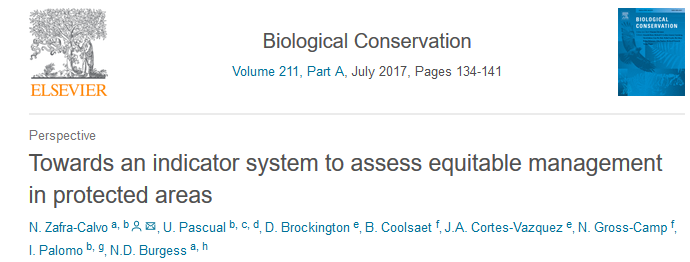June 21, 2017
Published by BC3Research Unai Pascual Ignacio Palomo at June 21, 2017
Categories
The connected nature of social-ecological systems has never been more apparent than in today's globalized world. The ecosystem service framework and associated ecosystem assessments aim to better inform the science–policy response to sustainability challenges. Such assessments, however, often overlook distant, diffuse and delayed impacts that are critical for global sustainability.
Do you like it?
June 28, 2017
Published by BC3Research at June 28, 2017
Categories
Water quality in the Midwestern United States is threatened as a result of agricultural runoff. Based on self-reported data from a survey of farmers in Indiana, we aim to provide a better understanding of how awareness of water quality problems, farm-as-business attitudes, and stewardship attitudes are related to each other and willingness to improve water quality.
Do you like it?
June 30, 2017
Published by BC3Research María Victoria Román de Lara Iñaki Arto at June 30, 2017
Categories
The Copenhagen and Paris Agreements, in which developed countries committed to mobilise USD 100 billion a year by 2020, indicate that climate finance will continue to grow. Even though economic development is not the aim of climate finance, climate-related disbursements will generate an economic impact on recipient countries’ economies. This impact will also reach other countries (including climate finance donors) through induced international trade. In this paper, we apply a structural decomposition analysis to study why the economic impact of climate finance varies between countries.
Do you like it?
July 5, 2017
Published by BC3Research Unai Pascual Ignacio Palomo at July 5, 2017
Categories
Aichi Target 11 (AT11), adopted by 193 Parties to the Convention on Biological Diversity (CBD) in 2010, states that protected areas (PAs) must be equitably managed by 2020. However, significant challenges remain in terms of actual implementation of equitable management in PAs. These challenges include, among others, the lack of a standardized approach to assess and monitor social equity and the difficulty of reducing social equity to a series of metrics. This perspective addresses these challenges and it proposes a minimum set of ten indicators for assessing and monitoring the three dimensions of social equity in protected areas: recognition, procedure and distribution.
Do you like it?




